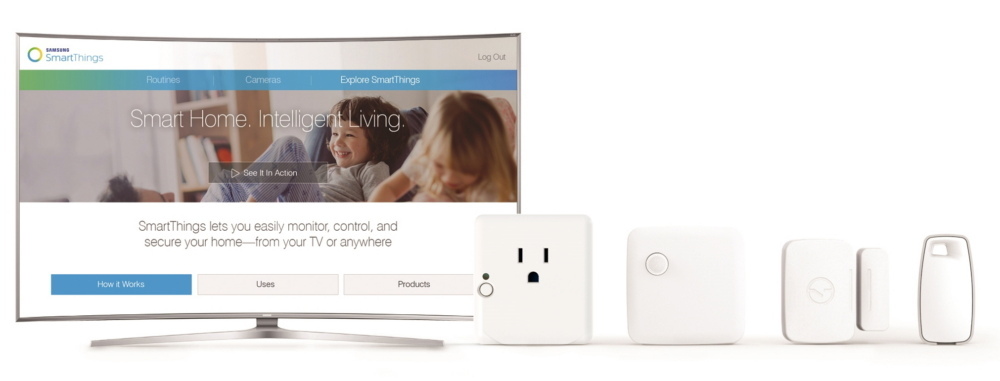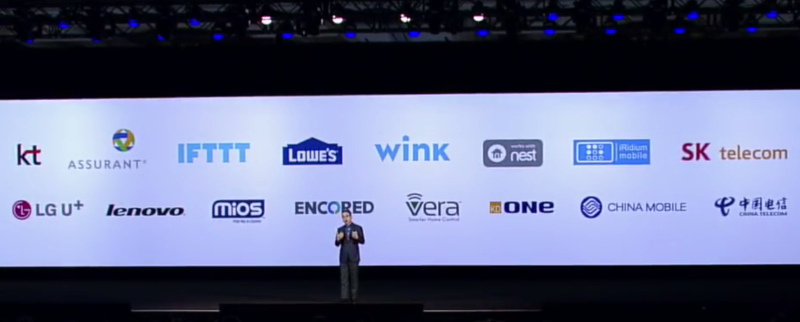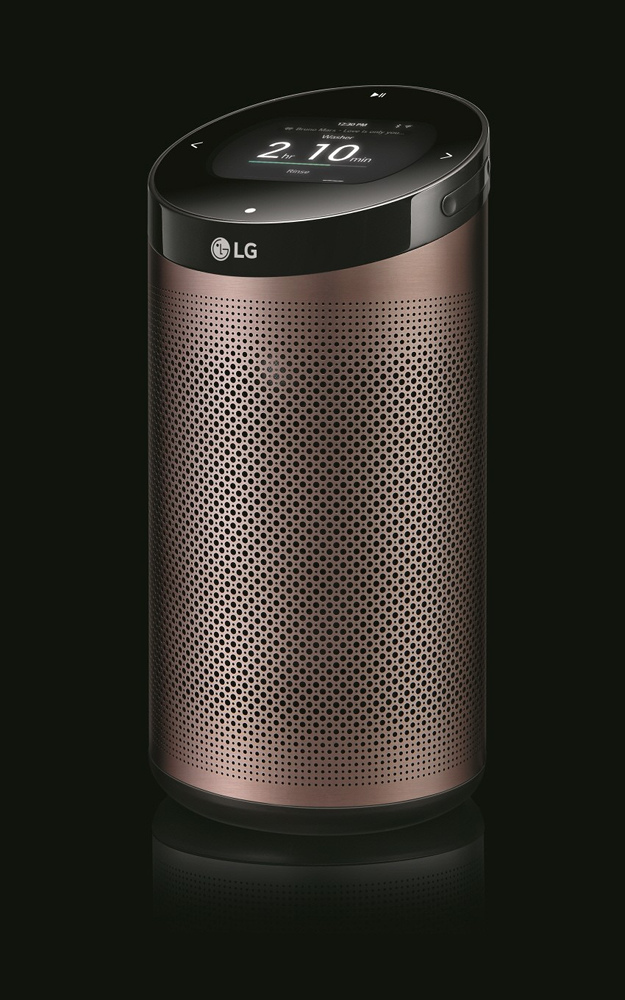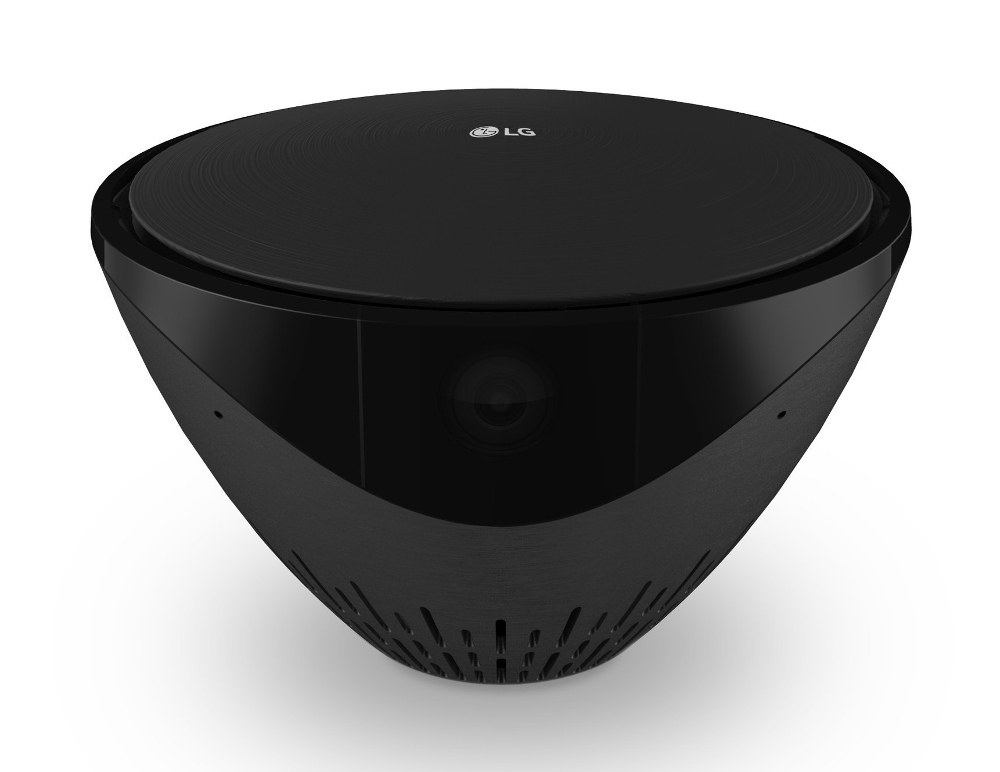CES 2016: LG and Samsung announcements for smart home
In the first half of January, the US hosted the traditional CES Consumer Electronics Show. Today it is practically impossible to strictly limit what exactly is included in this area of the market, since electronics is present everywhere - from household appliances and cars to watches and jewelry. The status of the event is confirmed by the uniquely high number of visitors (more than 170,000) and participants (almost 4,000).
Despite the development of cloud services and the expansion of access to the Internet, in the segment of home automation and IoT, solutions with a locally installed controller are most in demand today. They make it possible to work autonomously, implement interaction with simple sensors and actuators, the number of which in modern installations can reach tens, can act as a bridge for communication of various technologies, and also often have built-in programming tools for implementing complex system operation algorithms. It is clear that many manufacturers are trying to take this tidbit and tie the user to their services. But so far there are no obvious leaders here.
Large companies in the IT industry, such as Google and Microsoft, today are mainly engaged in software solutions and have limited offers on real equipment, which is exactly what consumers are interested in. So in a sense, Samsung and LG can be considered pioneers here, who have a uniquely wide range of household appliances and mobile devices, which allows them to build their own ecosystems.
The company remains true to its proprietary SmartThings technology. In addition to the existing hubs with its support, the company announced the implementation of the functions of a home automation controller in all TVs of the SUHD series of the 2016 model range.

Despite the formal implementation of only SmartThings, everything is not so bad, since this technology includes support for ZigBee, Z-Wave, as well as network control. Directly devices with it are released not only by Samsung, but the technology itself is declared as open. You can learn more about Samsung’s strategy in the IoT segment and look at already working solutions in a speech by Dr. Hong, President of Solution Business Unit. In particular, he noted wide support among partners, among which we, iRidium mobile.

In addition, Microsoft showed the interaction between its latest version of the Windows 10 operating system with a Samsung washing machine using Cortana's voice assistant. Another example of a successful collaboration is the integration of SmartThings support into BMW cars equipped with ConnectedDrive.
Interestingly, on the slide above you can see LG. At the same time, the company showed its own solutions at the exhibition, in particular SmartThinQ Hub. This relatively compact device is made in the format of a vertical cylinder. It can act as a hub for sensors and connected home devices, show reminders, play music. To do this, it has a small screen and built-in speaker.

The device is equipped with Wi-Fi, Bluetooth, Zigbee controllers and supports the increasingly popular AllJoyn standard. In addition, the updated software platform for webOS 3.0 TVs has an IoTV application that can control compatible equipment from LG and other companies. So in a sense, the television got another reason to be called the "center of the house."

Also at the exhibition was presented the LG Smart Security Device product - a multifunctional device with a built-in camera, temperature and humidity sensors, a siren and the functions of a smart home hub.
Despite the development of cloud services and the expansion of access to the Internet, in the segment of home automation and IoT, solutions with a locally installed controller are most in demand today. They make it possible to work autonomously, implement interaction with simple sensors and actuators, the number of which in modern installations can reach tens, can act as a bridge for communication of various technologies, and also often have built-in programming tools for implementing complex system operation algorithms. It is clear that many manufacturers are trying to take this tidbit and tie the user to their services. But so far there are no obvious leaders here.
Large companies in the IT industry, such as Google and Microsoft, today are mainly engaged in software solutions and have limited offers on real equipment, which is exactly what consumers are interested in. So in a sense, Samsung and LG can be considered pioneers here, who have a uniquely wide range of household appliances and mobile devices, which allows them to build their own ecosystems.
Samsung
The company remains true to its proprietary SmartThings technology. In addition to the existing hubs with its support, the company announced the implementation of the functions of a home automation controller in all TVs of the SUHD series of the 2016 model range.

Despite the formal implementation of only SmartThings, everything is not so bad, since this technology includes support for ZigBee, Z-Wave, as well as network control. Directly devices with it are released not only by Samsung, but the technology itself is declared as open. You can learn more about Samsung’s strategy in the IoT segment and look at already working solutions in a speech by Dr. Hong, President of Solution Business Unit. In particular, he noted wide support among partners, among which we, iRidium mobile.

In addition, Microsoft showed the interaction between its latest version of the Windows 10 operating system with a Samsung washing machine using Cortana's voice assistant. Another example of a successful collaboration is the integration of SmartThings support into BMW cars equipped with ConnectedDrive.
LG
Interestingly, on the slide above you can see LG. At the same time, the company showed its own solutions at the exhibition, in particular SmartThinQ Hub. This relatively compact device is made in the format of a vertical cylinder. It can act as a hub for sensors and connected home devices, show reminders, play music. To do this, it has a small screen and built-in speaker.

The device is equipped with Wi-Fi, Bluetooth, Zigbee controllers and supports the increasingly popular AllJoyn standard. In addition, the updated software platform for webOS 3.0 TVs has an IoTV application that can control compatible equipment from LG and other companies. So in a sense, the television got another reason to be called the "center of the house."

Also at the exhibition was presented the LG Smart Security Device product - a multifunctional device with a built-in camera, temperature and humidity sensors, a siren and the functions of a smart home hub.
